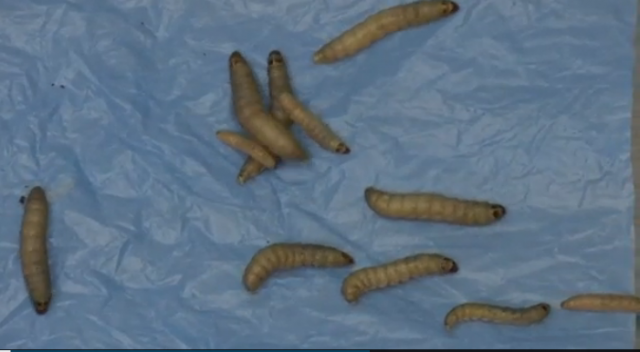The larvae of a caterpillar bred for fishing can break down polyethylene at unprecedented rates, say researchers. Polyethylene takes up to 400 years to biodegrade naturally and is responsible for millions of tonnes of landfill waste. Reuters’ Jim Drury reports.
Wax worms are often used as fishing bait. But the common moth larvae could have a role in solving the global pollution crisis.
A chance discovery showed that their bodies degrade polyethylene-based shopping bags faster than anything else.
“Our discovery showed that the rate of degradation is faster. The question we still need to address is ‘are we really dealing with some sort of enzyme created by the larvae?’ or perhaps there are bacteria – perhaps different bacteria from what have been characterized before,” Paolo Bombelli, biochemist, University of Cambridge, saying.
Wax worms are the scourge of beehives, planting eggs which grow on beeswax.
One day Spanish scientist Federica Bertocchini – an amateur beekeeper – dumped larvae from her hives into a plastic bag. Within hours she found the bag riddled with holes.
Intrigued, she set up full-scale lab tests. These suggested enzymes in the worms’ saliva or gut can break down the plastic chemical bonds.
“Someone could argue that not necessarily all these peaks can be explained by degradation of polyethylene, but then also you can notice that the surface, the roughness of the surface, was changed. This means that something is actually attacking the surface on the microscopic level,” Bombelli, saying.
When researchers mashed up worms and spread them on the bags, they found the plastic degraded at the same rate. It could lead to a future large-scale biotech solution to manage polyethylene waste. Polyethylene takes up to 400 years to degrade.
Bags made from it clog up landfill sites and pollute our oceans. This discovery could help us wriggle out of the onerous need to stop using them.










